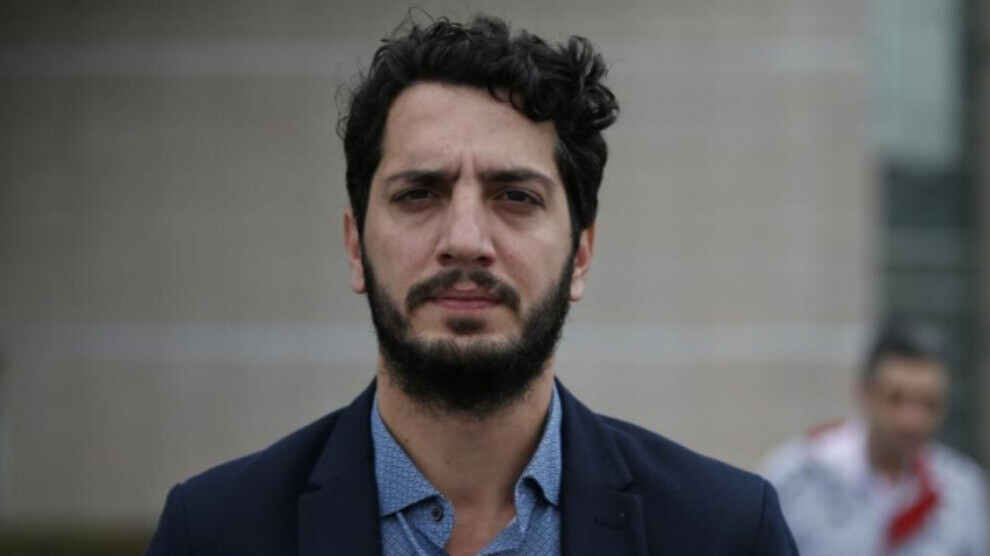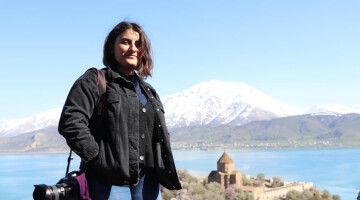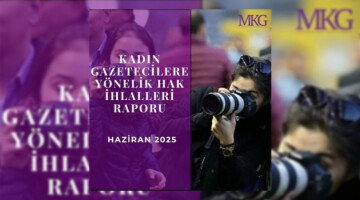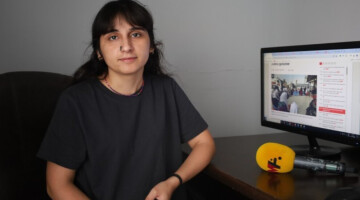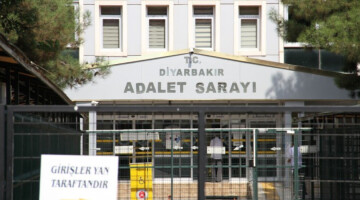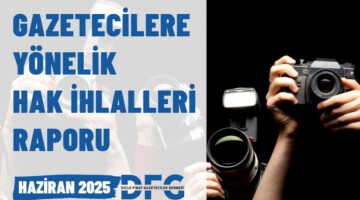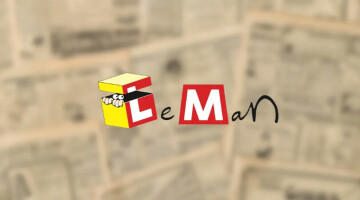Media and Law Studies Association (MLSA) Co-Director Veysel Ok said that the government in Turkey started internet censorship in 2012 and tried to control social media by enacting internet laws several times. Stating that the internet will be on the agenda of the government and everyone in the coming years, Lawyer Veysel Ok said, “We and the state are aware of this. Therefore, it is creating ideas on ‘how we can control it’.”
According to the 2023 Censorship Report prepared by FreeWeb; 30 domain names, mostly belonging to Kurdish media, were banned in Turkey in just one year. The report stated that a total of 14,680 news items were blocked in 2023, and that these news items were mostly about people who criticise the government or are close to the government.
The government realised the power of social media
Speaking to ANF, MLSA Co-Director Veysel Ok said the following about the censorship practices against the internet: “This is actually the result of a trend that has been developing since 2012, when the Gezi protests started. Both the government and the opposition realised that the internet media was replacing the mainstream media. People organised meetings and demonstrations on social media and expressed their views there. Social media and the internet media started to replace the mainstream media. The AKP also realised this and changed the internet law several times between 2012 and 2023. Why did it change it? Because it realised the power of this.”
93 percent of the mainstream media is in the hands of the government
According to TGS (Journalists' Union of Turkey) data, 93 percent of the mainstream media is in the hands of the government. Stating that journalists were then drawn to the internet media, Ok said: “When the internet media and virtual media started to set the agenda, the government repeatedly amended the law to control it. The Constitutional Court stated that the current Internet Law is against the law and should be amended. This is the result of the strengthening of the authoritarian tendency in Turkey, the monopolisation of the media and the government's desire to control the right to information.”
A consequence of the authoritarian regime in Turkey
Ok continued: “The government does not want information to come out from anywhere other than itself, so it censors any information it cannot control. Even a Criminal Judge of Peace in Gümüşhane, who has no knowledge of the subject, can block your news when you report on the government's red lines such as the Kurdish question, corruption, Syrian policy, refugees. Journalism in Turkey is now like writing on water. The moment you write, a criminal complaint is filed, the news item is banned, and access is blocked at the same time. This is a consequence of the authoritarian regime in Turkey. Numerous state institutions, from the National Lottery to Religious Affairs, have been authorised to block access without a direct court or judge's decision. This is the biggest indication that the situation has spiralled out of control and is unconstitutional as it does not require a judge's judgement. The Directorate of Religious Affairs has the power to directly block criticism of an Islamic community. Other institutions are also authorised to directly block criticism in their own fields. This is an indication of the multi-headedness of the law in Turkey.”
Even news about corruption, murder and child abuse are blocked
Ok emphasised that Articles 8/A and 9 of Law No. 5651, which are used for access blocking and bans, are misapplied and stated that these articles are related to personal rights: “Articles 8/A and 9 are the most misapplied articles. These articles are about the protection of personal rights, but in Turkey, even news about corruption, murder and child abuse are blocked on the grounds of personal rights. The Constitutional Court also recognised this in its ruling. You cannot block news on corruption on the grounds that ‘there is an attack on my personal rights’. Personal rights are one thing, corruption is another, but in Turkey, news on corruption, the Kurdish question and murders are blocked on the grounds of violation of personal rights. This is a clear indication that the article is misapplied.”
As authoritarianism increases, the pressure on the Kurdish media will also increase
Remarking that the government is targeting the Kurdish media the most and that this is a result of the authoritarianisation policy implemented in the Kurdish question, Ok said: “As a result of the deadlock in the Kurdish question in Turkey, the Kurdish media is banned the most. As the Kurdish question moves away from a peaceful ground and is tried to be suppressed with violence, as the state becomes authoritarian, the first target is the Kurdish media and Kurdish virtual media users. The state does not want any ideas other than its official ideology on the Kurdish question to be discussed. The state does not want Kurdish to be spoken. Institutions close to the state do not want Kurds' constitutional rights to be discussed. Since the current political conjuncture is far from making peace, this is a consequence of it. As authoritarianism increases on the Kurdish question, the pressure on the Kurdish media will also increase.”
The left-wing media is also under pressure
Ok pointed out that: “Apart from the Kurdish media, the left-wing media is under pressure for reporting on Kurds, corruption or Erdoğan and his family. The left-wing media has been blocked from access many times. When we look at the decision to block access or the news cited as justification, it is either news about corruption, news about Kurds or news criticising the state's Syria policy. This is not because they are left-wing media, but because of the content of the news.”
Referring to RTÜK (Radio and Television Supreme Council) statements on YouTube, Ok said, “YouTube is one of the areas that the state has not yet been able to control. There is still a chance to do free journalism there. In 2021, a regulation change was made by RTÜK. With this change, it was decided that YouTube would also come under RTÜK supervision. In addition, journalists broadcasting there are now obliged to obtain a licence, but this practice has not yet started. As the dose of criticism against the government has increased in street interviews recently, YouTube has become the target of the government. The RTÜK President announced that a warning letter would be sent to street interviews or other channels to obtain a licence and to comply with RTÜK's rules. We do not know how many channels there are. These channels may either be shut down, forced to obtain a licence or change their topics. The Turkish government wants to apply the same pressure on YouTube that it previously exerted on Instagram and Twitter.”
Internet will be on the agenda of the government and everyone
Stating that the internet will be on the agenda of the government and everyone in the coming years, Lawyer Veysel Ok added the following: “Both we and the state are aware of this, and therefore they are creating ideas on ‘how we can control it’. For this reason, I think journalists should make preparations. In the coming period, everything will be on the internet.”

